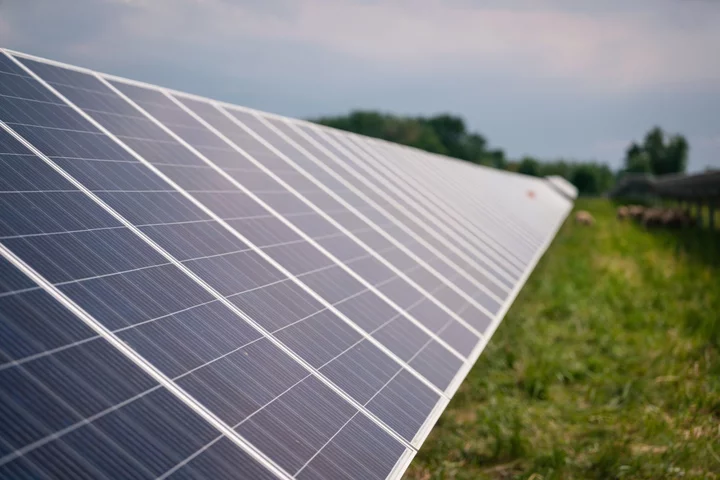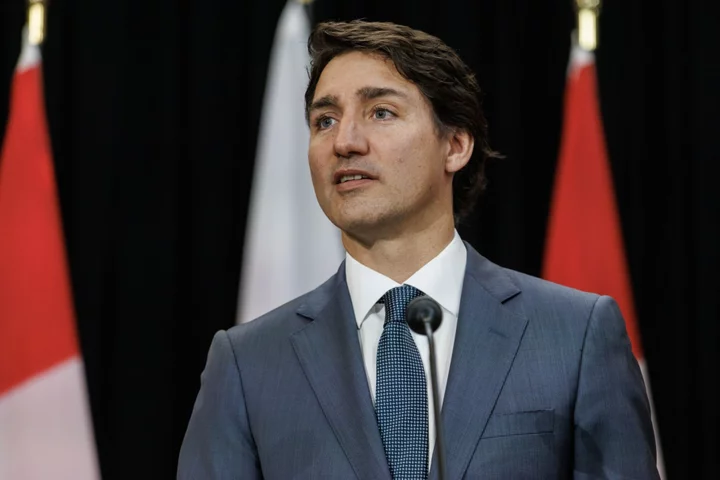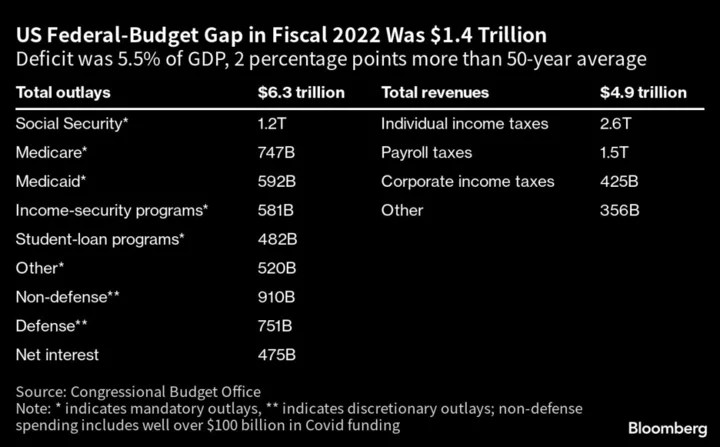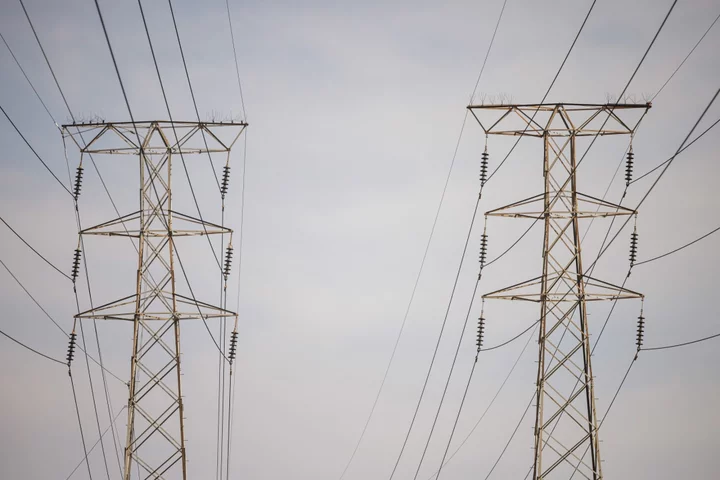The Biden administration needs to toughen trade enforcement to guard against unfair competition from Chinese solar suppliers as module prices plummet to record lows, according to the chief of the biggest US panel maker.
“If no one else wants to hold them accountable, I think the US needs to — for its own strategic rationale,” First Solar Inc. Chief Executive Officer Mark Widmar said in an interview Wednesday. “We need domestic capabilities, and renewable energy is one of them.”
The sweeping US climate law enacted last year already contains a raft of incentives meant to propel domestic solar manufacturing. And the US has imposed duties on some solar imports to offset allegations of unfair pricing and subsidies by China since 2011.
Read More: Record-Low Solar Module Prices Squeeze Margins
The US Commerce Department concluded last month that some manufacturers in Asia are illegally bypassing those tariffs. But a moratorium ordered by President Joe Biden put expanded duties on hold through June 6, 2024, in part to keep solar installations and climate goals on track while domestic production ramped up.
Solar panel prices have plunged as material costs have dropped with the addition of new polysilicon factories, returning the industry to a state of overcapacity. China has urged an end to US trade protectionism, saying it will disrupt the stability of supply chains and cooperation on climate change.
First Solar, which is set to break ground on its fifth US factory in Louisiana on Thursday, is somewhat insulated from tumbling module prices, Widmar said, helped by having sold out its planned output through 2026 and some of 2027, as well as a 70-gigawatt backlog of interest that, if booked, could lock up orders into 2030.
Incentives under the Inflation Reduction Act have already spurred announcements for new US solar manufacturing facilities. That’s undermining arguments that there’s not enough domestic production to meet demand, Widmar said, adding the more US capacity and innovation increases, “there’s no argument that can be made anymore with any real credibility, other than you just want solar at any cost.”
The executive hinted more domestic production will further strengthen the panel makers’ hands — potentially giving manufacturers additional leverage and resources to mount new trade cases.
“If we are starting to see dumping in the US market, there are mechanisms that can enforce that,” Widmar said. “If we have a large, robust, strong, vibrant, domestic manufacturing industry, when those challenges come up, we will be in a much better position to ensure we can get that level playing field.”
--With assistance from Luz Ding.
Author: Jennifer A. Dlouhy









